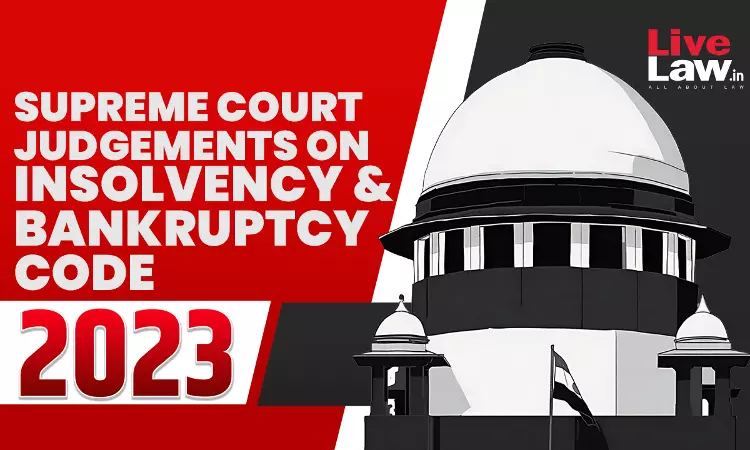Supreme Court Judgements On Insolvency & Bankruptcy Code In 2023
Anmol Kaur Bawa
27 Dec 2023 5:35 PM IST

Next Story
27 Dec 2023 5:35 PM IST
Sabka Vishwas Scheme: Supreme Court Grants Relief To Company Which Missed Deadline Due To IBC MoratoriumThe Supreme Court Bench comprising of Justices M R Shah and Justice B V Nagarathna has remarked that “No one can be expected to do the impossible” while granting relief to a company which could not avail the benefit of settlement of tax dues under “Sabka Vishwas (Legacy...
